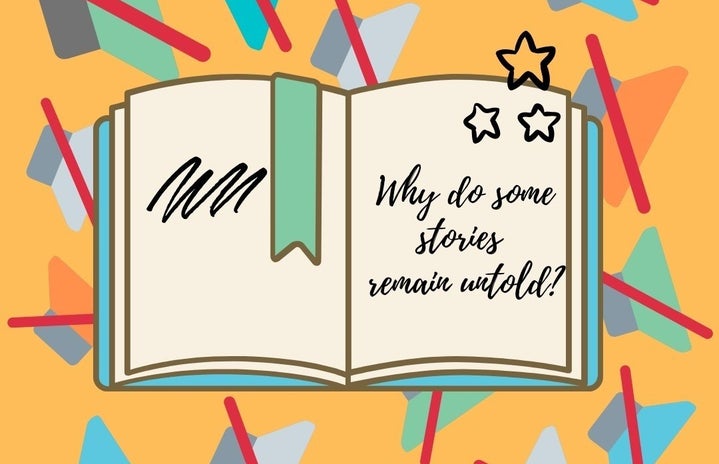Edited by Oishiki Ganguly
Stories have a way to transport us to the past. People’s stories have the power to preserve centuries of knowledge and historically relevant information about entire communities. History and the people who write these histories play an important role in preserving these stories and the community’s experiences. However, not all stories make it to the historians’ reach. One of the reasons that these stories elude historians and academics is the extinction of languages. Languages have a way of slipping through the cracks and with this loss of language, many stories are also forgotten.
Languages and stories are interconnected and have been used to facilitate each other throughout history. Stories can only be made sense of if one knows the language and at the same time the existence of a language can be propagated through the medium of stories. Consequently, it also becomes really difficult to decipher and bring back lost histories without the use of language. This can be seen in the case of the script of Indus Valley Civilization.
Several respected experts have hinted at the impossibility of the translation of the Indus script as described by Professor Arko Propola who is a professor of South Asian Studies at the University of Helsinki. He describes in his paper ‘The Indus Script: A Challenging Puzzle’ that “we have no Indus inscriptions with parallel versions in some other readable script; nor do we, in the absence of any political history, know the names of the Harappan gods, kings, cities or villages. Even the affinity of the Harappan language and the type of writing system represented by the Indus script are much debated. The texts are short and limited in nature, and there are no clearly recognizable word dividers such as have been very helpful in the analysis of many other scripts.” Since there is not enough evidence to translate the script a lot of the information that could have been gained through the written records now remains lost forever.
This extinction of some languages can also be a consequence of a hierarchy of languages that is evident in the Indian society. This hierarchy can be attributed, in part, to the advent of print media because only the languages with a script could be incorporated into the business of printing. This meant that the other languages were considered to be inferior and less resourceful than the ones that could be printed. When languages work in a hierarchy, there is a higher chance of that language dying out with time. A lot of such languages belong to certain tribes in India which have been dying out rapidly and with them, the culture and the storehouse of knowledge of these tribes are also going extinct.
Apart from the printing, some languages belonging to people in power automatically become a tool of suppression of people who speak the so-called “inferior” languages. It becomes a tool of shutting out the voices of already marginalized groups. This is also a strategy that the colonial rulers adopted to colonize countries. Their own language became more important and superior than that of the people of the land being colonized, by the virtue of them being the “superior” race that came to civilize “barbaric” lands. Their languages became a medium of dominance over their colonial subjects. And so, there was a certain loss of diversity in colonies because of the loss of languages during foreign rules.
When languages die, memories die with them. Languages are a way of preserving not only histories but also a community’s pride, shame, agonies and inspirations. A very effective way of preserving these languages is translation. Translations, in the cases that they are possible, can revive lost histories. This hierarchy of languages, however, also works in the world of translation. Not all pieces of literature are considered ‘worthy’ of translation and thus become even more vulnerable to extinction.
To preserve cultural heritage and diversity in this country, it is crucial to also preserve these languages. For it is only through oral histories and stories that many such communities can effectively stay in the public consciousness. To preserve these languages, we need to challenge the hierarchies that we create as a society when it comes to dialects and the people who speak them. We need to begin showing pride in every language we understand and even in the ones that we don’t.



